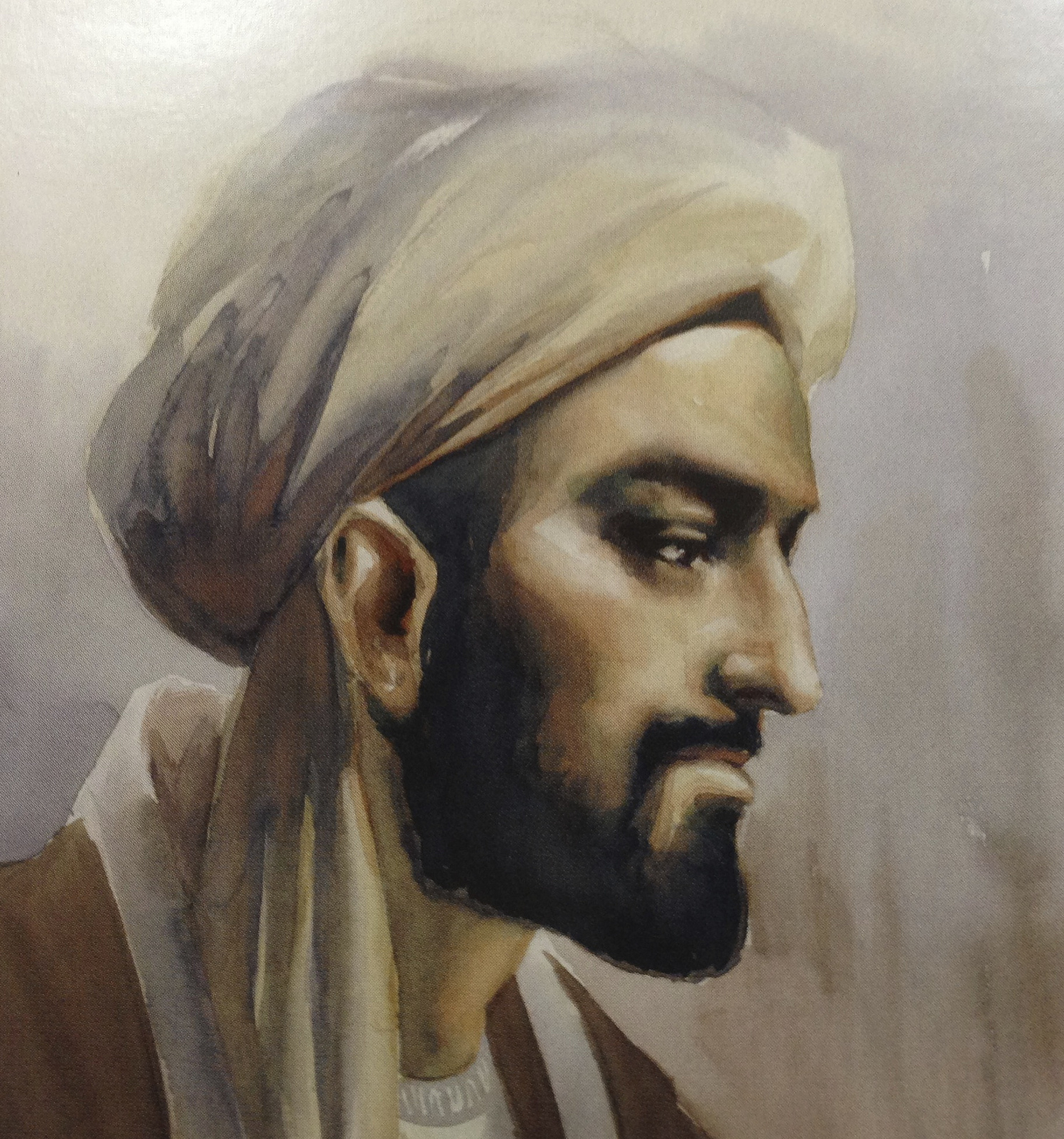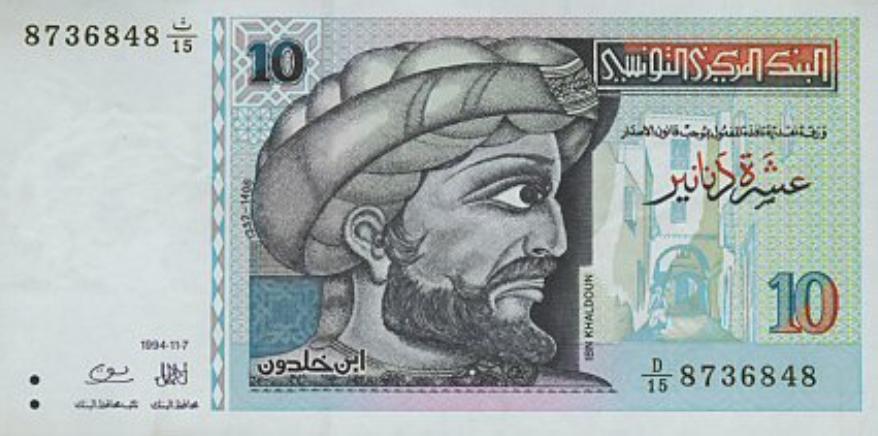

https://asadullahali.files.wordpress.com/2012/10/ibn_khaldun-al_muqaddimah.pdf - english translation
He made some comments regarding the Somali people;
"On the western shore of the Indian Ocean is Zayla' (Zila'), which is on the boundary of Abyssinia, and the desert plains of the Beja north of Abyssinia, which lie between the mountain of al-'Alliqi in the southernmost part of Upper Egypt and the Red Sea which branches off from the Indian Ocean. North of Zayla' (Zila') in the northern part of this section is the straits of Bib al-Mandeb, where the sea that branches off there is narrowed by the promontory of alMandeb which juts into the Indian Ocean from south to north along the west coast of the Yemen for twelve miles. As a result, the sea becomes so narrow that its width shrinks to approximately three miles. This is called Bib al-Mandeb. Yemenite ships pass it on their way to the coast of Suez near Egypt (Cairo). North of Bib al-Mandeb are the islands of Suakin and Dahlak. Opposite it to the west are the desert plains of the Beja, a Negro nation, as we have just mentioned. To the east, on the coast of (the straits of Bib al-Mandeb) is the Tihimah of the Yemen. It includes the place of Haly b. Ya'qub. To the south of Zayla' (Zila') on the western coast of the Indian Ocean are the villages of Berbera which extend one after the other all along the southern coast of the (Indian Ocean) to the end of the sixth section. There, to the east, the country of the Zanj adjoins them. Then comes the city of Mogadishu, a very populous city with many merchants, yet nomad in character, on the southern coast of the Indian Ocean. Adjoining it to the east is the country of the Sufilah on the southern coast in the seventh section of the first zone."
pg 91
"The second sea that branches off from the two straits of the Mediterranean is the Adriatic Sea (Gulf of Venice). It emerges from Byzantine territory at its northern limit. Then, from Sant' Angelo (de' Lombardi), its western boundary extends from the country of the Venetians to the territory of Aquileia, 1,100 miles from where it started. On its two shores live the Venetians, the Byzantines (Rum), and other nations. It is called the Gulf of Venice (Adriatic Sea). From the Surrounding Sea, they say, a large and wide sea flows on the east at thirteen degrees north of the equator. It flows a little toward the south, entering the first zone. Then it flows west within the first zone until it reaches the country of the Abyssinians and the Negroes (the Zanj) and Bib al-Mandeb in the fifth section of (the first zone), 4,500 parasangs from its starting point. This sea is called the Chinese, Indian, or Abyssinian Sea (Indian Ocean). It is bordered on the south by the country of the Negroes (Zanj) and the country of Berbera which Imru'ul-Qays mentioned in his poem. These "Berbers" do not belong to the Berbers who make up the tribes in the Maghrib. The sea is then bordered by the area of Mogadishu, Sufilah, and the land of al-Wigwiq, and by other nations beyond which there is nothing but waste and empty areas. On the north, where it starts, it is bordered by China, then by Eastern and Western India (al-Hind and asSind), and then by the coast of the Yemen, that is, al-Ahqif, Zabid, and other cities. Where it ends, it is bordered by the country of the Negroes, and, beyond them, the Beja.Two other seas, they say, branch off from the Indian Ocean. One of them branches off where the Indian Ocean ends, at Bib al-Mandeb. It starts out narrow, then flows widening toward the north and slightly to the west until it ends at the city of al-Qulzum in the fifth section of the second zone, 1,400 miles from its starting point. This is the Sea of al-Qulzum or Sea of Suez (Red Sea). From the Red Sea at Suez to Fustat is the distance of a three days' journey. The Red Sea is bordered on the east by the coast of the Yemen, the Hijiz, and Jiddah, and then, where it ends, by Midyan (Madyan), Aila (Aylah), and Faran.On the west, it is bordered by the coast of Upper Egypt, 'Aydhib, Suakin, and Zayla' (Zila'), and then, where it begins, by the country of the Beja. It ends at al-Qulzum. It (would) reach the Mediterranean at al-'Arish. The distance between (the Red Sea and the Mediterranean) is a six days' journey. Many rulers, both Muslim and preIslamic, have wanted to cut through the intervening territory (with a canal) but this has not been achieved"
pg 103
@jugjugwacwac @Prince Abubu @Canuck @Zayd @Bahal @Guysensei @Vanguard @oday1kenobi @government @Madara x @Prince of Lasanod @Merca @horumar @XamarCade @DuctTape @shanqale @Huur @HILIB-CUNE @Armadillo @MadNomad @crudetruth @Araman @Luna @RagingSince @Boqor Geeljire252 @Prince of Hobyo @anonymous34 @Meek Mill @daacad @fardowsa @Paladin @Generalissimo @Human @cantspeak @Shangani @TSP @SOMALI GENERAL @McLovin @Amun @xisaabiye
His comments on the negro.
"Close to it in the north is the country of the Lamtunah and of the other groups of the Veiled Berbers (Sinhajah), as well as the deserts in which they roam. To the south of this Nile, there is a Negro people called Lamlam. They are unbelievers. They brand themselves on the face and temples. The people of Ghanah and Takrur invade their country, capture them, and sell them to merchants who transport them to the Maghrib. There, they constitute the ordinary mass of slaves. Beyond them to the south, there is no civilization in the proper sense. There are only humans who are closer to dumb animals than to rational beings. They live in thickets and caves and eat herbs and unprepared grain. They frequently eat each other.68 They cannot be considered human beings"
pg 101/102
"The inhabitants of the zones that are far from temperate, such as the first, second, sixth, and seventh zones, are also farther removed from being temperate in all their conditions. Their buildings are of clay and reeds. Their foodstuffs are durra and herbs. Their clothing is the leaves of trees, which they sew together to cover themselves, or animal skins. Most of them go naked. The fruits and seasonings of their countries are strange and inclined to be intemperate. In their business dealings, they do not use the two noble metals, but copper, iron, or skins, upon which they set a value for the purpose of business dealings. Their qualities of character, moreover, are close to those of dumb animals. It has even been reported that most of the Negroes of the first zone dwell in caves and thickets, eat herbs, live in savage isolation and do not congregate, and eat each other. The same applies to the Slavs. The reason for this is that their remoteness from being temperate produces in them a disposition and character similar to those of the dumb animals, and they become correspondingly remote from humanity. The same also applies to their religious conditions. They are ignorant of prophecy and do not have a religious law, except for the small minority that lives near the temperate regions. (This minority includes,) for instance, the Abyssinians, who are neighbors of the Yemenites and have been Christians from pre-Islamic and Islamic times down to the present; and the Mali, the Gawgaw, and the Takrur who live close to the Maghrib and, at this time, are Muslims. They are said to have adopted Islam in the seventh [thirteenth] century. Or, in the north, there are those Slav, European Christian, and Turkish nations that have adopted Christianity. All the other inhabitants of the intemperate zones in the south and in the north are ignorant of all religion. (Religious) scholarship is lacking among them. All their conditions are remote from those of human beings and close to those of wild animals. "And He creates what you do not know."
pg123/124
"WE H A V E S E E N that Negroes are in general characterized by levity, excitability, and great emotionalism. They are found eager to dance whenever they hear a melody.229 They are everywhere described as stupid. The real reason for these (opinions) is that, as has been shown by philosophers in the proper place, joy and gladness are due to expansion and diffusion of the animal spirit. Sadness is due to the opposite, namely, contraction and concentration of the animal spirit. It has been shown that heat expands and rarefies air and vapors and increases their quantity. A drunken person experiences inexpressible joy and gladness, because the vapor of the spirit in his heart is pervaded by natural heat, which the power of the wine generates in his spirit. The spirit, as a result, expands, and there is joy. Likewise, when those who enjoy a hot bath inhale the air of the bath, so that the heat of the air enters their spirits and makes them hot, they are found to experience joy. It often happens that they start singing, as singing has its origin in gladness" pg 127
"Therefore, the Negro nations are, as a rule, submissive to slavery, because (Negroes) have little (that is essentially) human and have attributes that are quite similar to those of dumb animals, as we have stated" pg 137
@Grant aren't you afrocentrists, what do you think of Ibn Khaldun? :siilaanyolaugh:
@Hugo :siilaanyosmile:
Ibn Khaldun on arabs
"This is because, on account of their savage nature, (the Arabs) are people who plunder and cause damage. They plunder whatever they are able to lay their hands on without having to fight or to expose themselves to danger. They then retreat to their pastures in the desert. They do not attack or fight except in selfdefense. Every stronghold or (locality) that seems difficult (to attack), they bypass in favor of some less difficult (enterprise). They do not attack it. Tribes that are protected against (the Arabs) by inaccessible mountains are safe from their mischief and destructiveness. The Arabs would not cross hills or undergo hardship and danger in order to get to them. Flat territory, on the other hand, falls victim to their looting and prey to their appetite whenever they (have the opportunity of) gaining power over it, when there is no militia, or when the dynasty is weak. Then they raid, plunder, and attack that territory repeatedly, because it is easily (accessible) to them. Eventually, its inhabitants succumb utterly to the Arabs and then they are pushed around by them in accordance with changes of control and shifts in leadership. Eventually, their civilization is wiped out. God has power over His creatures"
pg198
"The reason for this is that (the Arabs) are a savage nation, fully accustomed to savagery and the things that cause it. Savagery has become their character and nature. They enjoy it, because it means freedom from authority and no subservience to leadership. Such a natural disposition is the negation and antithesis of civilization. All the customary activities of the Arabs lead to travel and movement. This is the antithesis and negation of stationariness, which produces civilization. For instance, the Arabs need stones to set them up as supports for their cooking pots. So, they take them from buildings which they tear down to get the stones, and use them for that purpose. Wood, too, is needed by them for props for their tents and for use as tent poles for their dwellings. So, they tear down roofs to get the wood for that purpose. The very nature of their existence is the negation of building, which is the basis of civilization. This is the case with them quite generally. Furthermore, it is their nature to plunder whatever other people possess. Their sustenance lies wherever the shadow of their lances falls. They recognize no limit in taking the possessions of other people. Whenever their eyes fall upon some property, furnishings, or utensils, they take it. When they acquire superiority and royal authority, they have complete power to plunder (as they please). There no longer exists any political (power) to protect property, and civilization is ruined. Furthermore, since they use force to make craftsmen and professional workers do their work, they do not see any value in it and do not pay them for it. Now, as we shall mention, labor is the real basis of profit. When labor is not appreciated and is done for nothing, the hope for profit vanishes, and no (productive) work is done. The sedentary population disperses, and civilization decays. Furthermore, (the Arabs) are not concerned with laws. (They are not concerned) to deter people from misdeeds or to protect some against the others.
They care only for the property that they might take away from people through looting and imposts. When they have obtained that, they have no interest in anything further, such as taking care of (people), looking after their interests, or forcing them not to commit misdeeds. They often level fines on property, because they want to get some advantage, some tax, or profit out of it. This is their custom. It does not help to prevent misdeeds or to deter those who undertake to commit (misdeeds). On the contrary, it increases (misdeeds), because as compared to getting what one wants, the (possible financial) loss (through fines) is insignificant. Under the rule of (the Arabs), the subjects live as in a state of anarchy, without law. Anarchy destroys mankind and ruins civilization, since, as we have stated, the existence of royal authority is a natural quality of man. It alone guarantees their existence and social organization. That was mentioned above at the beginning of the chapter.Furthermore, (every Arab) is eager to be the leader. Scarcely a one of them would cede his power to another, even to his father, his brother, or the eldest (most important) member of his family. That happens only in rare cases and under pressure of considerations of decency. There are numerous authorities and amirs among them. The subjects have to obey many masters in connection with the control of taxation and law. Civilization, thus, decays and is wiped out. 'Abd-al-Malik asked one Arab who had come to him on an embassy about al-Hajjaj. He wanted him to praise alHajjaj for his good political leadership (for the benefit of) civilization. But the Arab said: "When I left him, he was acting unjustly all by himself."
It is noteworthy how civilization always collapsed in places the Arabs took over and conquered, and how such settlements were depopulated and the (very) earth there turned into something that was no (longer) earth. The Yemen where (the Arabs) live is in ruins, except for a few cities. Persian civilization in the Arab 'Iraq is likewise completely ruined. The same applies to contemporary Syria. When the Banu Hilal and the Banu Sulaym pushed through (from their homeland) to Ifrigiyah and the Maghrib in (the beginning of) the fifth [eleventh] century and struggled there for three hundred and fifty years, they attached themselves to (the country), and the flat territory in (the Maghrib) was completely ruined. Formerly, the whole region between the Sudan and the Mediterranean had been settled. This (fact) is attested by the relics of civilization there, such as monuments, architectural sculpture, and the visible remains of villages and hamlets. God inherits the earth and whomever is upon it. He is the best heir."
pg 199/200


Last edited:














